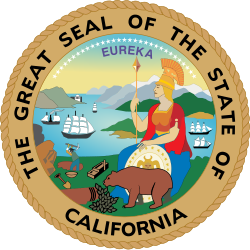This article has multiple issues. Please help improve it or discuss these issues on the talk page . (Learn how and when to remove these messages)
|
| Hayden Act | |
|---|---|
 | |
| California State Legislature | |
| Full name | An act to amend Sections 1815, 1816, 1834, 1845, 1846, 1847, and 2080 of, and to add Section 1834.4 to, the Civil Code, to amend Sections 31108, 31752, and 32001 of, to add Sections 17005, 17006, 31752.5, 31753, and 32003 to, and to add, repeal, and add Section 31754 of, the Food and Agricultural Code, and to amend Section 597.1 of, and to add Section 599d to, the Penal Code, relating to stray animals. |
| Introduced | February 18, 1998 |
| Assembly voted | August 26, 1998 (72-3) |
| Senate voted | August 30, 1998 (22-9) |
| Signed into law | September 22, 1998 |
| Sponsor | Tom Hayden |
| Governor | Pete Wilson |
| Bill | SB 1785 |
| Website | http://www.leginfo.ca.gov/pub/97-98/bill/sen/sb_1751-1800/sb_1785_bill_19980923_chaptered.html |
Status: Partly in force (Some parts of the Act were suspended due to financial concerns.) | |
The Hayden Act, introduced by California Senator Tom Hayden as Senate Bill 1785 on February 18, 1998, amended California Law as it applies to companion animals. [1]
Contents
- Authorship and ratification
- Lawsuits
- Lock v. Kern County, California
- Johnson v. Kings County, California
- Jacie Conaway v. San Bernardino County, California
- Rich Mc Lellan, M.D. v. Mendocino County, California
- References
Under the then-existing law, dogs or cats impounded by public pounds or shelters could be killed after 72 hours of being impounded. [1] The Hayden Act, signed into law on September 22, 1988 and effective July 1, 1999, [2] expanded this minimum impound time to 4 or 6 business days, as specified, and required that the animal be released to a nonprofit animal rescue or adoption organization in certain circumstances, subject to specified exceptions. [1]